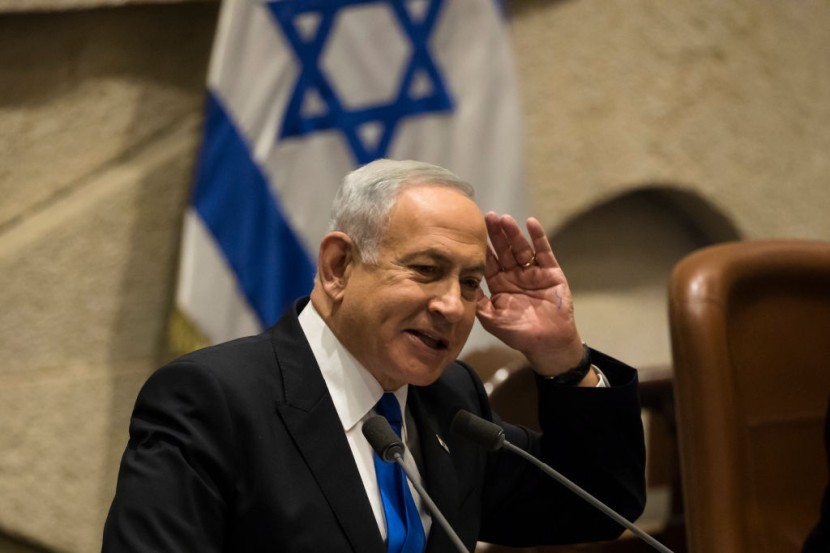
Israeli Prime Minister Netanyahu shrugged off the massive demonstrations that involved roughly 80,000 protesters that condemned the planned overhaul of the country's judiciary.
The overhaul includes the weakening of the country's Supreme Court, which would prevent it from being able to veto legislation and policies that are deemed unconstitutional. It would also grant the government control over the panel that appoints judges.
Benjamin Netanyahu's Judicial Overhaul Plan
Critics have argued that on top of other planned legislation, the planned changes will affect Israel's democratic character. This is due to upsetting the nation's system of checks and balances, granting too much power to the executive branch, and leaving minorities to fend for themselves.
In a statement released by Netanyahu's office, the prime minister argued that there were massive protests two months ago. He said millions took to the streets to vote in the elections. Netanyahu argued that one of the systems the people voted in support of was overhauling the judicial system, per the Times of Israel.
During the weekly cabinet meeting in Jerusalem, Netanyahu said that everyone who went to the election rallies in city centers and neighborhoods could hear the rising voices from the crowds.
The prime minister also urged to avoid being swept away by inflammatory slogans regarding civil war and the destruction of the state. Netanyahu added that when he was in the opposition, he and his allies did not call for civil war or speak about the state's destruction.
Last week, rhetoric over the overhauls and pushback against them flared up when opposition lawmaker Benny Gantz accused the prime minister of "leading toward civil war." On the other hand, leader Yair Lapid urged supporters of his Yesh Atid party to take to the streets as part of a "war over our home."
Massive Israeli Protests
During the massive protest that involved roughly 80,000 Israelis, people held signs that compared the prime minister to Russian President Vladimir Putin. Some also said that Israel was becoming similar to semi-democratic Hungary and theocratic Iran, according to CNN.
Several protesters said that they came out into the streets because they feared for Israel's future and to message Netanyahu that the public would not stand for what they consider the dismantling of Israeli democracy.
On Thursday, the president of Israel's Supreme Court, Esther Hayut, criticized the proposed changes as an "unbridled" attack on the country's legal system. He added that they were made to force a fatal blow on the judicial system's independence.
One group of protesters was seen clashing with police officers while attempting to block access to a major road, the Ayalon highway in Tel Aviv. Critics also said that the planned overhauls would foster corruption, violate minority rights, and deprive the country's court system of credibility.
The demonstrators also had protesters draped in Israeli flags, carrying posters in Hebrew and pictures of Netanyahu with an X over his mouth said BBC.
Related Article : Peru Protests Death Toll Update








